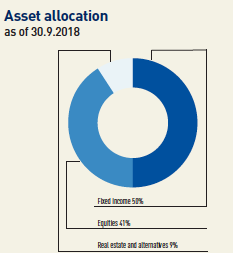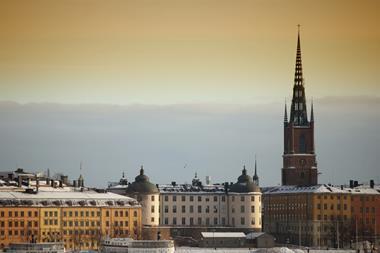Sweden’s AP2 made a 1.3% loss on investments last year, with a slump in listed equities counteracted by “solid” returns from private equity, real estate and Chinese bonds.
The fund – one of the country’s four main buffer funds for the state pension system – said the loss amounted to a decline of SEK4.3bn (€411m) in absolute terms, contributing to a fall in assets under management to SEK334.8bn at the end of December, compared to SEK345.9bn a year earlier.
However, the fall was mainly caused by a SEK6.8bn net payment into the national pension system.
While the fund’s equity investments lost money – in common with almost every other pension provider to have reported 2018 results – AP2’s alternative investments portfolio posted significant gains.
Chinese government bonds produced a 10.2% return last year for AP2, while property generated 14.7% and private equity returned 19.9%, according to the fund’s annual report.
Eva Halvarsson, AP2’s CEO, said last year was characterised by several factors, including an underlying strong global economy coupled with market turbulence because of geopolitical events.
Preparations for the new investment regulations and continued sustainability integration also played a big role in the pension fund’s work last year, she added.
“One important aspect of the latter has been the implementation of our internally developed indices, which focus heavily on sustainability factors,” Halvarsson said.
The revised investment mandate for the four main AP funds came into effect at the beginning of this year.
“We welcome the new investment regulations and the opportunity to invest more in various types of non-listed assets, which could compensate for a lower anticipated return on some listed assets, help diversify the portfolio further and set better conditions for creating continued solid, risk-adjusted returns,” Halvarsson said.
The pension fund also reported that its listed equity portfolio’s greenhouse gas emissions for 2018 amounted to the equivalent of 1.7m tonnes of carbon dioxide. This was down from 2.6m tonnes in 2017.








